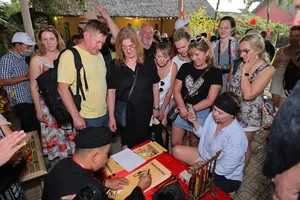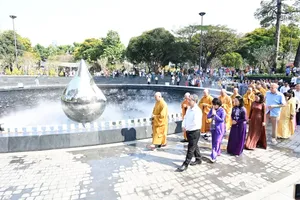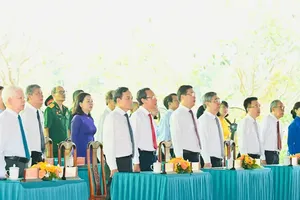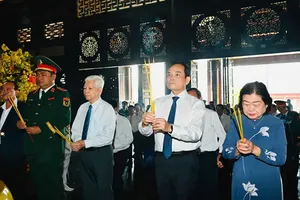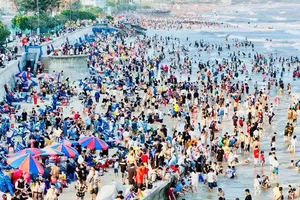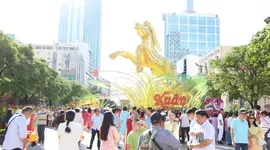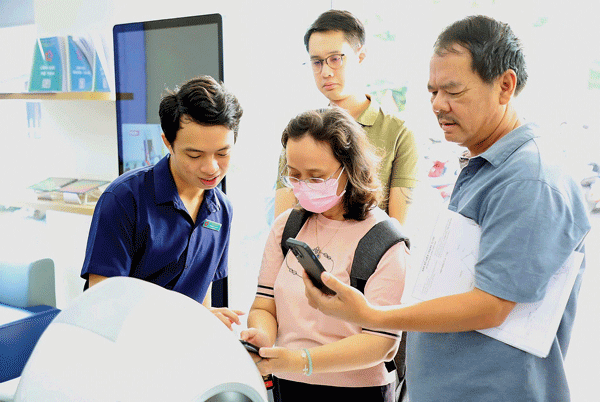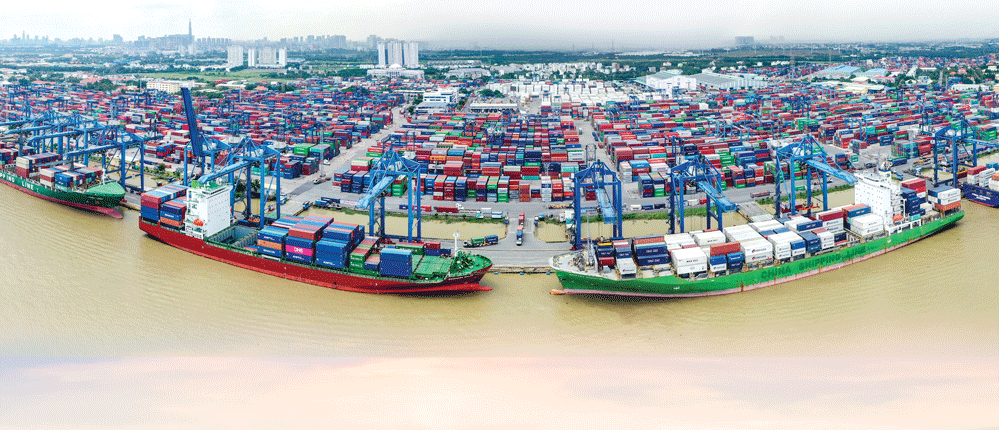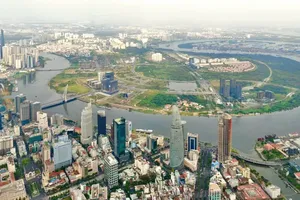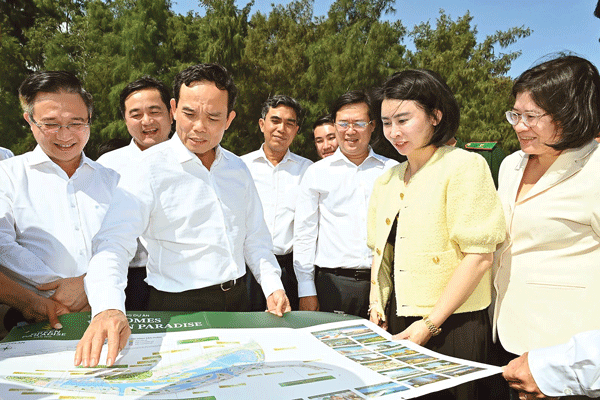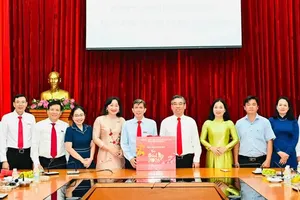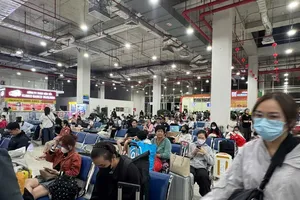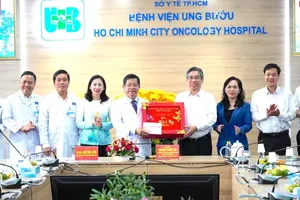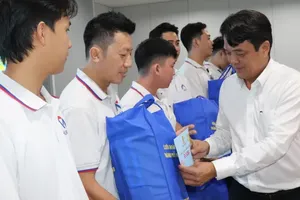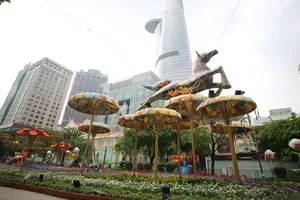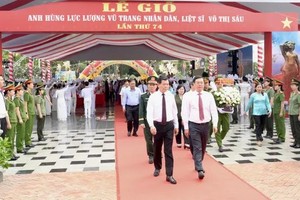
On October 11, at the headquarters of Sai Gon Giai Phong Newspaper, the Internal Affairs Board of the HCMC Party Committee, which serves as the Permanent Agency of the city's Anti-Corruption and Anti-Negativity Steering Committee, in collaboration with Sai Gon Giai Phong Newspaper, held a seminar titled "Solutions for Recovering Corrupt Assets in HCMC."
At the seminar, Lieutenant Colonel Ngo Thuan Lang, Deputy Head of the Economic Police Division of the HCMC Police Department, emphasized that asset recovery is a crucial objective for evaluating the effectiveness of investigations into cases in general and economic corruption cases in particular.

In this context, the Party Committee and the Director's Board of the HCMC Police have thoroughly communicated this key task to the entire police force in the city. "In implementing the directives from the Central and HCMC Anti-Corruption and Anti-Negativity Steering Committees, as well as from various levels, the Investigation Police Agency of the HCMC Public Security Department has adhered to a principle of no areas being off-limits and no exceptions in its investigative activities, particularly regarding economic crimes, official misconduct, and corruption," Lieutenant Colonel Ngo Thuan Lang stated.
According to statistics, from 2021 to 2023, the Investigation Police Agency of the HCMC Police handled 208 cases involving 512 defendants and addressed 419 economic corruption cases, with the total amount of misappropriated assets reaching roughly VND2 trillion. During this period, the HCMC Police successfully recovered VND1.26 trillion, achieving a recovery rate of 63.2 percent. This result is notable and demonstrates initial effectiveness.
In light of these outcomes, Lieutenant Colonel Ngo Thuan Lang remarked that the process of identifying, seizing, and recovering assets at the HCMC Investigation Police Agency has faced numerous challenges.
Legally, asset seizure is applicable only to defendants and accused individuals, while asset freezing can only be enforced against those formally charged with a crime. Additionally, seized assets must be directly related to the offense, and any frozen amounts in bank accounts must correspond accordingly.
"This determination is quite challenging because, during the pre-trial stage—including the investigation, reporting, and case initiation—identifying the cash flows can be complex because the cash flows are intertwined, necessitating great caution from the investigation agency," Lieutenant Colonel Ngo Thuan Lang noted.
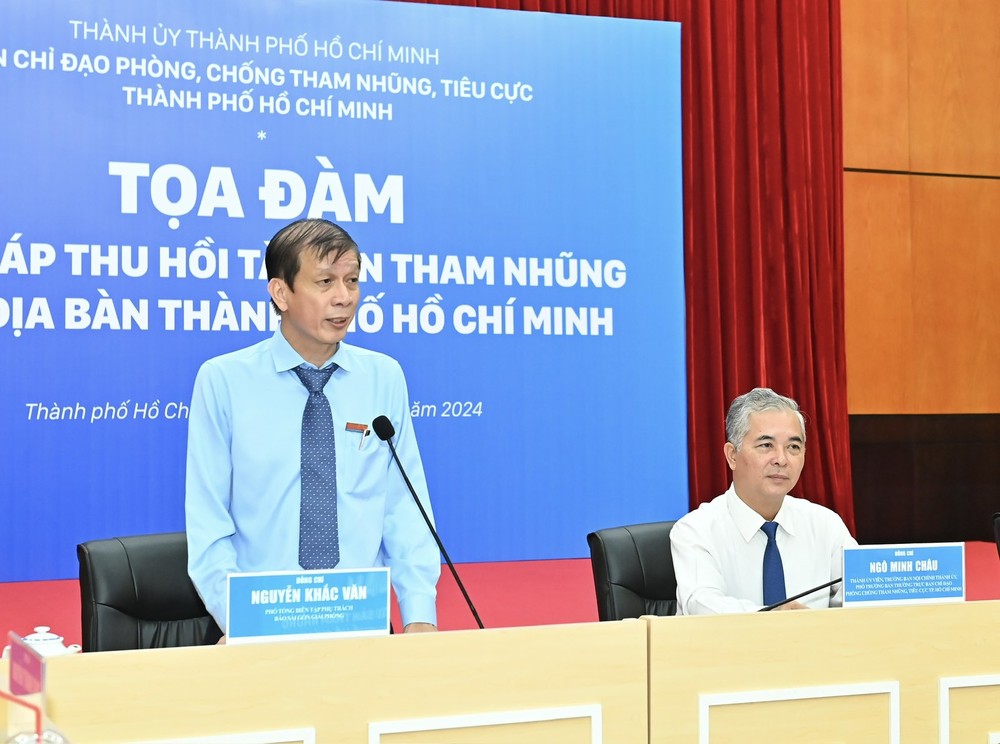
Meanwhile, according to regulations, during the investigation process, if a suspect goes missing or related individuals flee and cannot be identified, the case must be suspended or temporarily halted. This creates significant challenges in determining the extent of damages for asset recovery.
In practice, the national database is gradually improving, with many data fields designed to facilitate asset recovery. However, the limited connection between land ownership and bank account data complicates the identification of asset recovery.
During criminal activities, offenders tend to prepare meticulously. They and their associates prefer cash transactions, making it difficult to identify and classify assets. Furthermore, transferring money abroad is alarmingly easy and difficult to regulate; a simple phone call from Vietnam can facilitate transactions and convert funds into overseas investments. As a result, legal assistance and cooperation in these cases face significant obstacles.
Lieutenant Colonel Ngo Thuan Lang emphasized the need to establish a legal framework that enables prosecuting agencies and relevant authorities to perform their duties more transparently and decisively. This framework should clearly outline the responsibilities of various units in providing and exchanging information to assist in identifying criminal assets, thus facilitating asset seizure and recovery efforts.
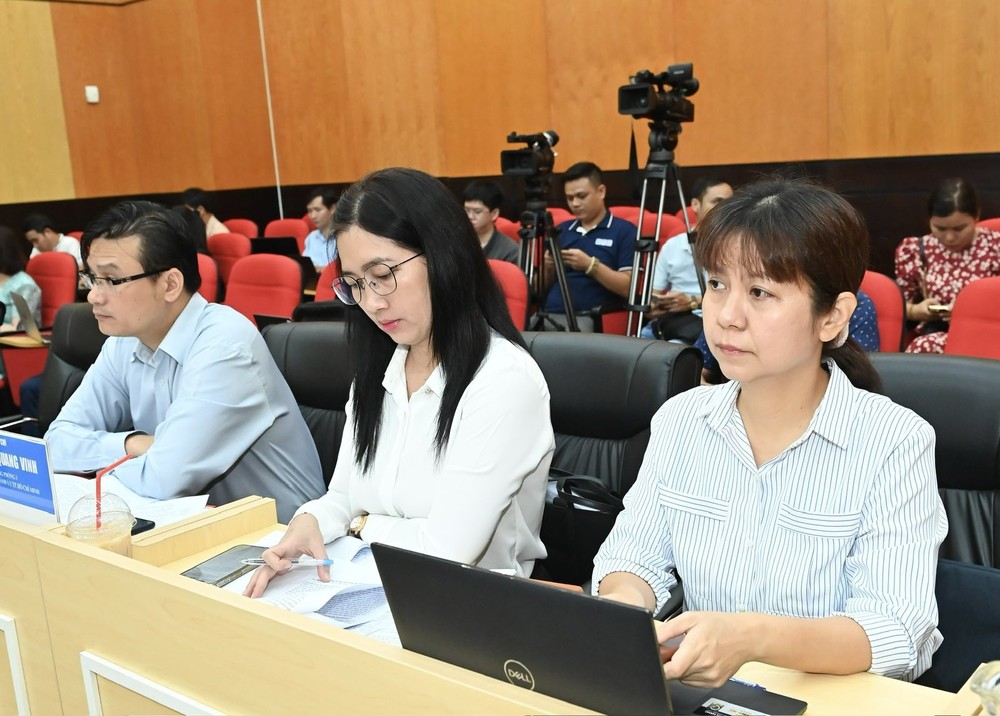
He also pointed out that globally, there are four methods for asset recovery: criminal prosecution, based on criminal judgments, administrative decisions, and civil lawsuits. "We can adapt and consider these methods to expedite the issuance and registration of assets, creating a legal foundation that enhances transparency in the operations of prosecuting agencies, pre-trial processes, and other authorities, thereby improving the effectiveness of asset recovery," Lieutenant Colonel Ngo Thuan Lang recommended.
The seminar was chaired by Mr. Ngo Minh Chau, Member of the HCMC Party Committee, Head of the Internal Affairs Board of the HCMC Party Committee, and Permanent Deputy Head of the city's Anti-Corruption and Anti-Negativity Steering Committee; Mr. Tang Huu Phong, Deputy Head of the Propaganda and Education Board of the HCMC Party Committee; and Mr. Nguyen Khac Van, Deputy Editor-in-Chief in charge of Sai Gon Giai Phong Newspaper.
Also attending were leaders from the HCMC People's Court, the People's Procuracy, the HCMC Police, the HCMC Inspectorate, the Department of Finance of HCMC, the Civil Judgment Enforcement Department of HCMC, along with experts and lawyers.
Recently, thoroughly grasping directives from the Politburo, the Secretariat, the HCMC Party Committee, and the Standing Committee of the HCMC Party Committee on strengthening Party leadership in detecting and addressing cases, as well as recovering assets lost or misappropriated in corruption and economic crime cases, the city’s judicial authorities and relevant agencies have implemented a range of measures aimed at improving asset recovery rates. Despite these efforts, the recovery rate still falls short of the set targets.
As Vietnam’s leading economic, financial, and commercial hub, with extensive international integration, HCMC faces complex challenges in maintaining social order and security. The city ranks among the top two nationwide for the number of criminal cases detected and resolved.
Corruption and misconduct not only result in significant financial losses for the State but also undermine public trust in the Party. As such, recovering assets lost or misappropriated in corruption and economic crime cases is a critical and urgent task, requiring steadfast determination and continuous effort from leadership at all levels, relevant authorities, and the wider community.
This seminar seeks to explore the challenges and obstacles in asset recovery efforts and propose practical, feasible solutions to improve the efficiency of asset recovery. The focus is on strengthening coordination between prosecution agencies and relevant authorities to create positive, synchronized, and consistent improvements in the asset recovery process, from the inspection and examination stages to investigation, prosecution, trial, and enforcement.
